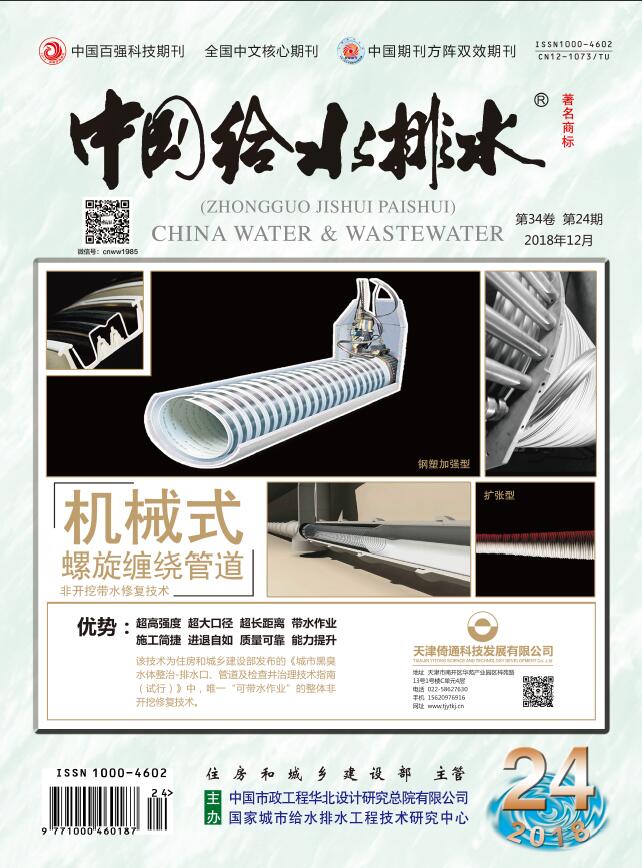SHANGYa-bo,ZHANGZhi-peng,YINWei-min,et al.Nucleation Crystallization Pelleting (NCP) Process for Simultaneous Removal of Hardness and Suspended Solids in Mine Drainage Water[J].China Water & Wastewater,2025,41(11):56-64.
Nucleation Crystallization Pelleting (NCP) Process for Simultaneous Removal of Hardness and Suspended Solids in Mine Drainage Water
China Water & Wastewater[ISSN:1000-4062/CN:12-1073/TU]
volume:
第41卷
Number:
第11期
Page:
56-64
Column:
Date of publication:
2025-06-01
- Keywords:
- drainage water; nucleation crystallization pelleting process; hardness; suspended solids; simultaneous removal
- Abstract:
- Aiming at the problem of high content of hardness and suspended solids in the advanced treatment of coal mining drainage water, which affects the water recycling, the nucleation crystallization pelleting (NCP) process with the ability of simultaneous hardness and suspended solids removal was developed. In addition, calcium and magnesium crystal seeds were synthesized and modified. An integrated pilot-scale reactor was designed to carry out application research. Key parameters were optimized and the removal efficiency was evaluated. The results of the pilot-scale reactor for two-stage NCP process showed that when NaOH dosage was 250 mg/L in the first stage and 500 mg/L in the second stage, the removal efficiency of total hardness and turbidity could reach more than 90.7% and 75% respectively, which achieved the simultaneous removal of hardness and suspended solids. The results of X-ray diffraction (XRD) and X-ray photoelectron spectroscopy (XPS) showed that the NCP in the first and second stage formed dense CaCO3 and Mg(OH)2 pellets, respectively. The results of scanning electron microscopy (SEM) and Fourier-transform infrared spectroscopy (FT-IR) proved that the suspended solids were co-precipitated on the surface of pellets and removed simultaneously, which finally reduced the effluent turbidity. As determined by the Zeta potential on the surface of the crystal seeds, it was found that Ca2+/Mg2+ was mainly accumulated on the surface of the customized crystal seed by electrostatic force, and grown into dense pellet on the surface of the crystal seed driven by the reagents, which finally was separated from water. The NCP process can not only overcome the shortcomings of the traditional bi-alkaline method (high dosages of chemicals and operational costs), but also reduce sludge production.
Last Update:
2025-06-01

